Research News

When the Jamil Niner Student Pantry opened on campus in 2014, professor Nicole Peterson decided to focus a research project on campus, working to determine the depths of the food insecurity problem on the UNC Charlotte campus.
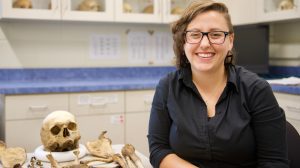
Two infants unearthed in ancient burial mounds in Salango, Ecuador were buried wearing helmets crafted from the skulls of other children, in what researchers believe was a unique practice perhaps intended to protect the infants’ souls during their journey to the afterlife. The research team – composed of UNC Charlotte’s Juengst and Abigail Bythell and Richard Lunniss and Juan José Ortiz Aguilu of Universidad Técnica de Manabí in Ecuador – published their findings in November in the journal Latin American Antiquity.

Unemployment significantly increases the odds of men entering jobs traditionally performed by women. Notably, some men find real job advantages as a result, a study published in the journal “Social Science Research” by Jill Yavorsky of UNC Charlotte and Janette Dill of the University of Minnesota finds.
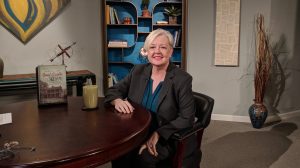
A book by UNC Charlotte history professor Karen L. Cox about Confederate monuments is one of the first four books under contract in the newly created Marcie Cohen Ferris and William R. Ferris Imprint for high-profile, general-interest books about the American South. Authors chosen are considered among the nation’s leading authors.
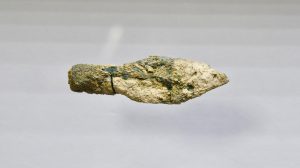
Researchers digging at the University of North Carolina at Charlotte’s ongoing archaeological excavation on Mount Zion in Jerusalem have announced a second significant discovery from the 2019 season – clear evidence of the Babylonian conquest of the city from 587/586 BCE.
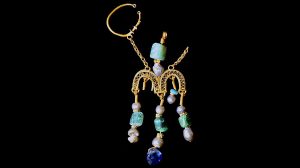
Finds at the UNC Charlotte-led archaeological dig on Jerusalem’s Mount Zion confirm previously unverified details from nearly thousand-year-old historical accounts of the First Crusade. This is history that had never been confirmed regarding the five-week siege, conquest, sack and massacre of the Fatimid (Muslim)-controlled city in July of 1099.

Being an informed citizen in a democracy necessitates understanding the people who make, and will be affected by, community decisions. The Civic Eats project seeks to help create a better informed Charlotte citizenry through a focus on the connective potential of foodways – or why we eat, what we eat, and what it means.
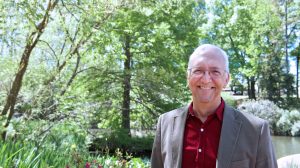
James Cook, a professor in the Department of Psychological Science at UNC Charlotte, has received the 2019 Outstanding Educator Award, a top award given by the Society for Community Research and Action (SCRA), Division 27 of the American Psychological Association. The award recognizes Cook’s long-standing and far-reaching contributions to community psychology and community research and action through education.

UNC Charlotte bioarchaeologist Sara L. Juengst studies human skeletal remains to learn about and tell the stories of past communities and cultures. Bioarchaeologists study burial sites, items found at burial sites, and bones.
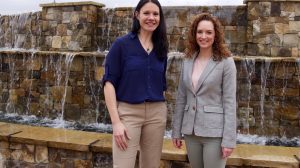
Bummed out by ongoing work stress? Tempted to reach for yet another cup of coffee to help you cope? Resist the temptation – unless you want to darken your already gray mood to pitch-black, according to a UNC Charlotte study by doctoral student Lydia G. Roosand Jeanette M. Bennett, associate professor in the Department of Psychological Science.
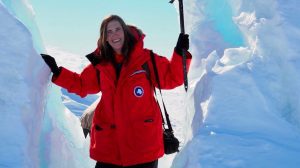
Antarctica’s McMurdo Dry Valleys region is one of the coldest, driest, and windiest places on the planet. Temperatures in this area can plunge to 58 degrees below zero. Its deposits and landforms contain records of past climate not accessible elsewhere in the world. Antarctica’s unique climate enticed UNC Charlotte earth sciences researcher Martha Cary Eppes and her research colleagues to spend weeks camping out in a tent in the sub-zero temperatures, in order to – literally – monitor and listen to rocks as they fracture.
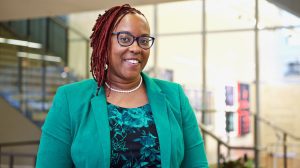
UNC Charlotte Associate Professor of English Janaka Bowman Lewis will spend four weeks this summer in residency at the National Humanities Center in the Research Triangle Park, working on a project about “Black Girlhood and the Power of Belonging.” Lewis will join a select group of about 40 scholars from across the nation who have been chosen to do research in residency at the Center.
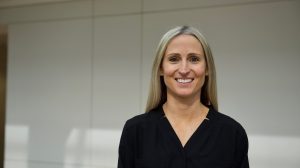
Men hold nearly all primary breadwinning positions in top income households, and the glass ceiling that has hindered women’s advancement in the workplace is more extensive than previously thought, a new study by UNC Charlotte researcher Jill Yavorsky and colleagues finds.
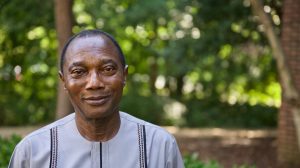
In his 2017 memoir At Home, Away From Home, UNC Charlotte’s Tanure Ojaide speaks of the indelible impressions from his early years in Nigeria. In his words, “One does not forget what one yearns for at heart.” At age 70, many of his poems, short stories, critical essays, and books serve as activist works calling out for justice and fairness for the people and the ecosystem of the Niger Delta.
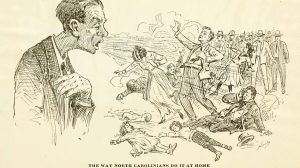
Flu season is upon us once again. This October marked the 100th anniversary of the Influenza Epidemic (Spanish Flu) of 1918 in North Carolina, and we can learn lessons from the historic event. Lauren Austin, who earned her Public Policy Ph.D. and master’s degree in History from UNC Charlotte, researched this influenza pandemic, which left citizens “afraid to breathe,” as she describes it. Her research, with co-author Dr. William P. Brandon, appears in the book, “North Carolina’s Experience during the First World War,” co-edited by UNC Charlotte history professors Dr. Steven Sabol and Dr. Shepherd McKinley.
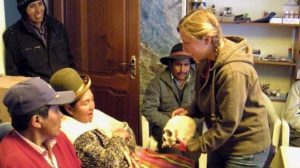
Bioarchaeologists like UNC Charlotte researcher Sara L. Juengst are part archaeologist, part biological anthropologist. They study human skeletal remains to learn about and tell the stories of past communities and cultures. While archaeologists more often study settlement patterns and artifacts like ceramics or stone tools from historical excavations, bioarchaeologists study burial sites, items found at burial sites, and bones.

Members of the Charlotte-Mecklenburg community have a new way to share their opinions on a variety of issues with the launch of YourVoiceCLT. Charlotte’s Community Survey Panel was founded by the UNC Charlotte Urban Institute, the Ph.D. in Public Policy Program, the Department of Political Science and Public Administration, and the Policy Opinion, Learning and Sentiment Lab.

The LYNX Blue Line Extension’s first trip in March 2018 signaled dramatic change for UNC Charlotte and the Charlotte community. For researchers Isabelle Nilsson and Elizabeth Delmelle, the new line and the neighborhoods it passes through between Uptown Charlotte and the main campus represent a living laboratory for research exploring how transit investments affect neighborhood change and the implications for residential mobility and income segregation.